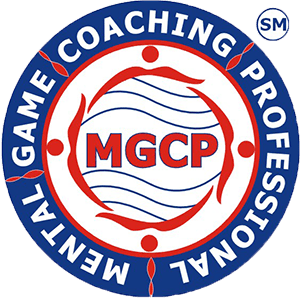Tips for Mental Coaches
In this Mental Coach video, Dr. Cohn answers the question: “How do I gain credibility as a sports psychologist or mental game coaching professional?”
Many mental coaches ask this important question just after finishing their MGCP certification or completing graduate school in applied sports psychology.
Credibility is also important for established professionals in sports psychology. Boosting your credibility depends on many factors, some of which you might not consider…
Return to Mental Coach Mentor Videos Page
Transcript
How do you gain credibility as a mental coach? Hi, I’m Dr. Patrick Cohen with the MGCP certification program.
0:08 I’m going to talk a little bit about gaining credibility if you’re starting from zero as a mental coach. In other words, you’re a new mental coach.
0:16 One of the questions that I receive from some of the MGCP participants or people that want to join the MGCP program is, I don’t have any credentials.
0:28 I don’t have any degrees. I don’t have a degree. in sports psychology, a master’s degree or a Ph.D. in sports psychology.
0:37 And that’s partly the reason why I started the MGCP certification program, is to give coaches and life coaches and therapists a form of credibility, knowing that they’ve went through a rigorous program.
0:50 program in mental coaching. Let’s start from the perspective that you already have credibility. Most people that come into the course, um, were an athlete themselves, were a coach themselves, for example, or have been dabbling in mental coaching.
1:07 Or, maybe you have credibility as a life coach, or a therapist, or a psychologist, And you’ve already been working with individuals on their mindset.
1:17 So basically you already have credibility at some level. Do you need a degree or a master’s degree in sports psychology?
1:26 No, not necessarily. Take a look at a guy named, uhm, Jim Fannin, with his own coach. Uhm, he’s been very successful over the years, and he doesn’t have an advanced degree.
1:37 A good place to start. To develop your credibility is simply to do good work with athletes that you know. Work with coaches that you know, maybe friends you know, maybe you have parents, uhm, that you’re friends with, that their kids compete, for example.
1:53 Start from that perspective and work in your inner circle and who you know. That starts to develop the credibility ball rolling.
2:03 So, I did that early on, uh, in a small town named East Aurora, New York, where we had some high level golfers there.
2:12 One of those happened to be EJ Pfister uhm, and another kid that I worked with as well, uhm, who went to Ball State.
2:24 So, you don’t have to jump right into working with professional athletes. That’s all cool and sexy, but that’s not where I’d want you to start.
2:30 You want to start with youth sports, younger athletes, juniors, maybe club players, and follow them up through the ranks. Like Rick Sessinghaus, for example, who took the course back in 2007.
2:43 2005 or 2006, he worked with junior golfers right up from when they were young, and now he has a PGA Tour star on his hands.
2:53 Uhm, that’s ideally what you want to do, is bring them along from junior to college to professional. And then finally, you want to get endorsements for athletes.
3:04 Now, this isn’t for everyone. Because, for psychologists, for example, they’re really not allowed to use testimonials. But how I look at it is, we’re coaches, we’re teaching athletes.
3:15 athletes’ mental skills, and we’re not doing therapy with athletes at all. So, getting endorsements is absolutely critical to your credibility, because parents and athletes want to know, who have you worked with?
3:30 If you get a call from, you know, a college athlete, or a parent of a college athlete, they’re going to say, well, have you worked in this particular sport?
3:38 So, getting endorsements from other athletes is absolutely critical for your credibility. You’ll learn all the secrets I teach about building credibility as an MGCP, as, mental game coaching professional within the MGCP course.
4:12 if you want more information about the course, reach out to us at Peak Performance Sports or the Mental Game Coaching Professional website.

